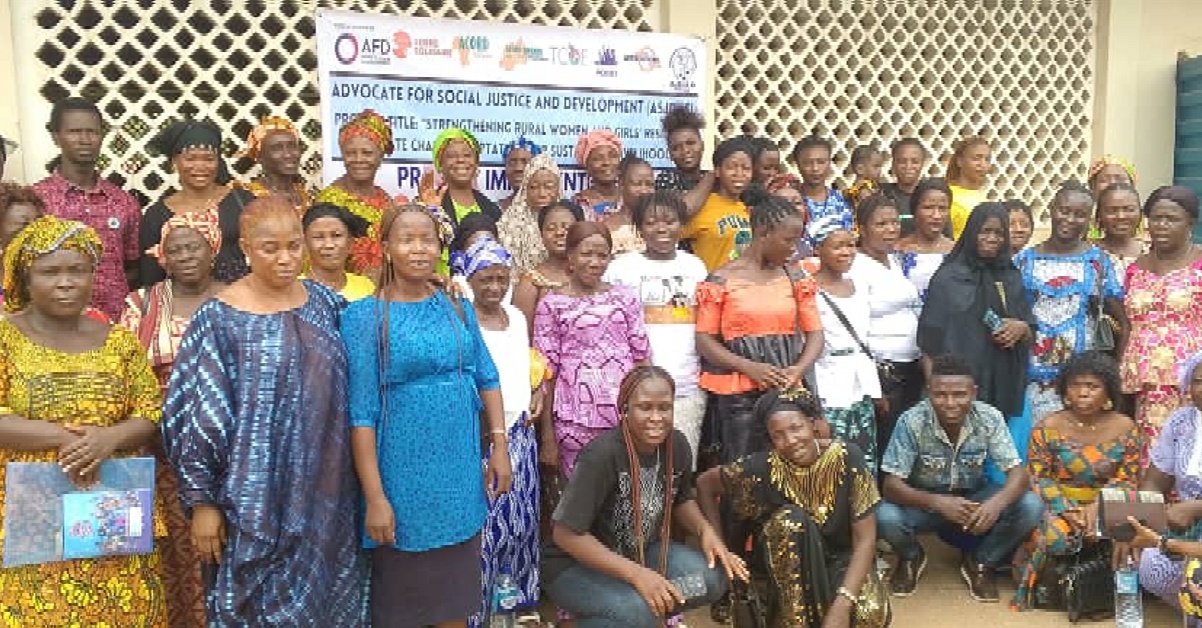In a bid to empower rural women and tackle climate change, the Advocate for Social Justice and Development (ASJD) partnered with several organizations to deliver a day-long training session for women and girls from three chiefdoms.
The project, titled “Strengthening Rural Women and Girls’ Resilience in Climate Adaptation for Sustainable Livelihoods,” was held on May 2nd, 2024, at the Old Youth Center in Koidu City. It aimed to equip participants from Tankoro, Kamaa, and Nimikoro chiefdoms with the knowledge and skills needed to adapt to climate change and embrace sustainable practices.
ASJD Executive Director, Mr. Arthur Kargbo, explained the project’s year-long approach, aiming to have beneficiaries adopt climate-resilient practices by its conclusion. “This training is about building action plans and making them a reality,” he said, emphasizing that financial assistance would depend on implementing these changes.
Madam Christine Petiquoe, Coordinator of the Kono Women’s Organizations Network (KOWONET), highlighted the project’s focus on women’s leadership. She mentioned potential financial support of NLe 10,000 for six women’s groups from each chiefdom, but stressed it would hinge on the training’s success.
Mr. Willie Sylvernus Collier, representing the Environmental Protection Agency (EPA) in Kono District, addressed key environmental issues. He covered topics like understanding climate change, promoting sustainable farming techniques, and collaborating with media and women-led organizations like KOWONET. These themes were presented in a clear and actionable way for the participants.
Mr. Sahr Samuel Joe Coo-facilitator led a session on action plans, encouraging participants to propose solutions for issues like deforestation, bush burning, and charcoal production. A diverse range of plans emerged, including promoting sustainable practices, raising community awareness, engaging in local environmental projects, advocating for policy changes, and implementing sustainable agriculture. The plans also covered contributing to a circular economy, embracing green technologies, monitoring environmental changes, supporting sustainable businesses, and fostering intergenerational learning.
The organizations involved committed to collaborating to implement these action plans.
While acknowledging the challenges of changing ingrained practices, some participants expressed their determination. “Climate change is a reality that impacts our lives,” said one participant. “We will strive to make these changes for our children and the future.”











